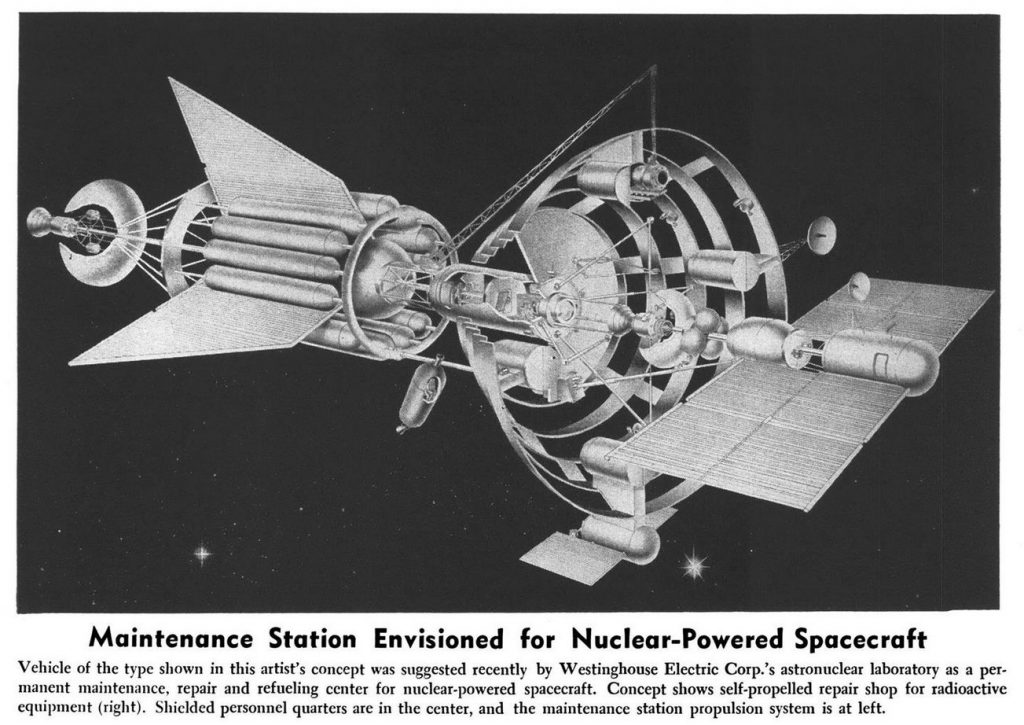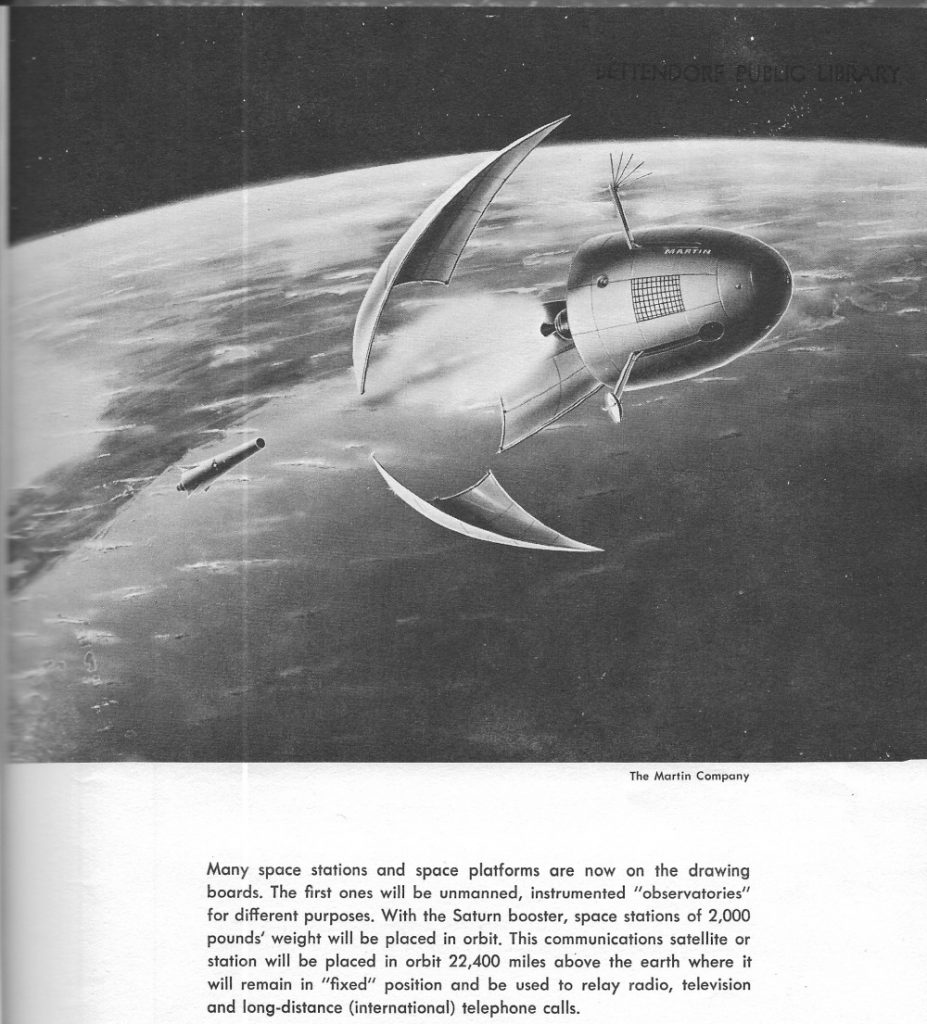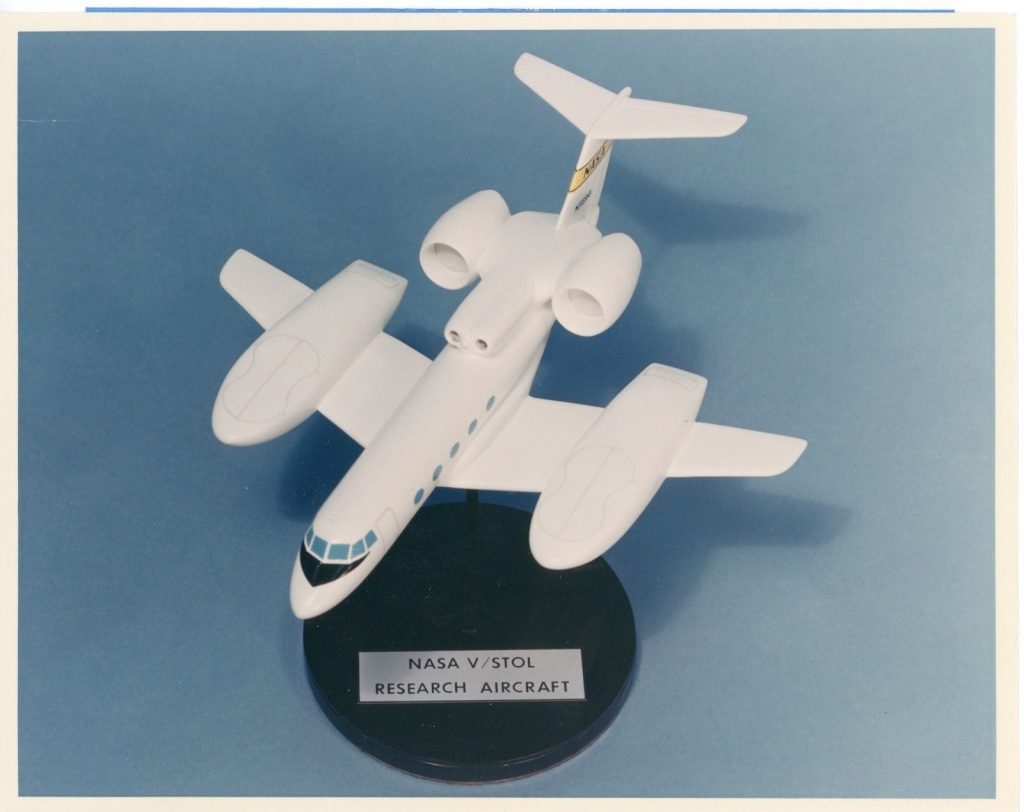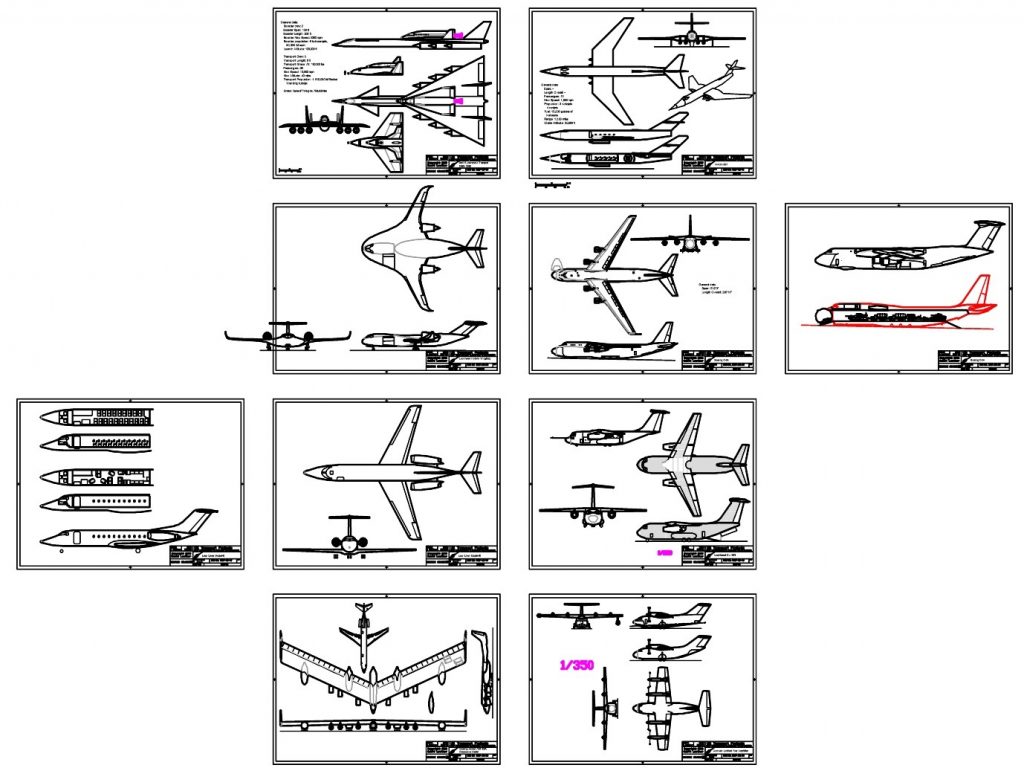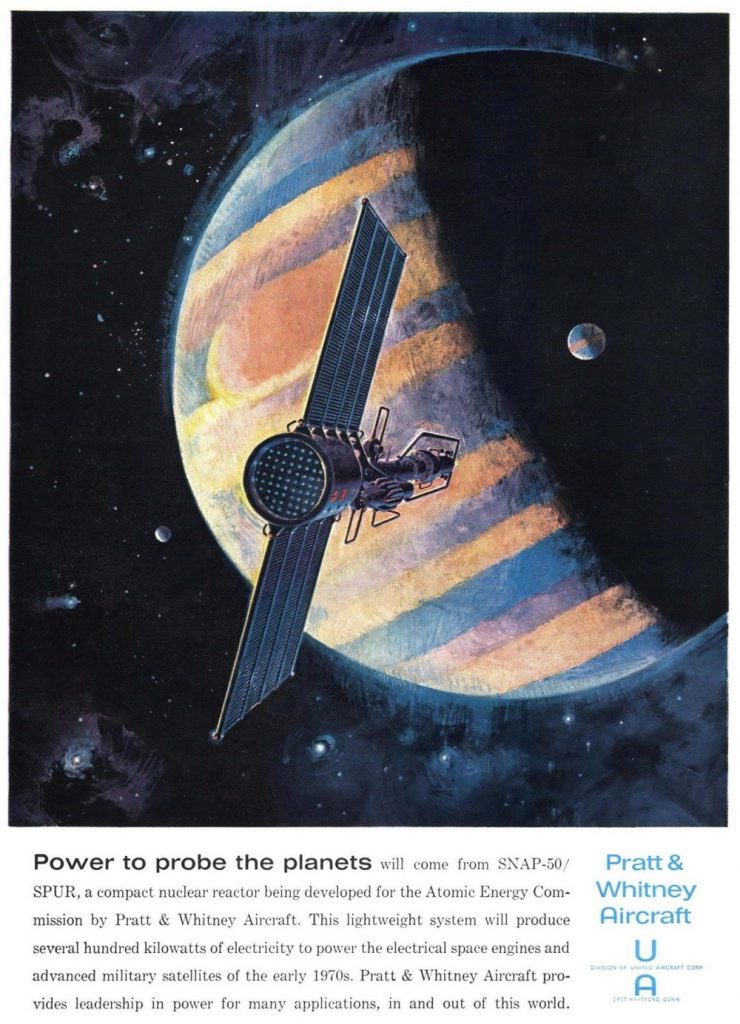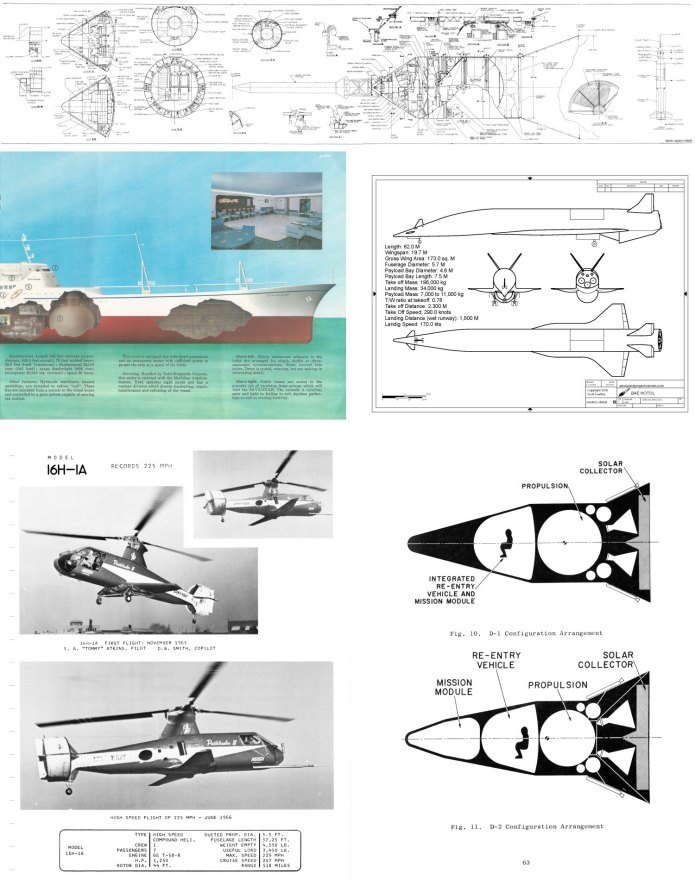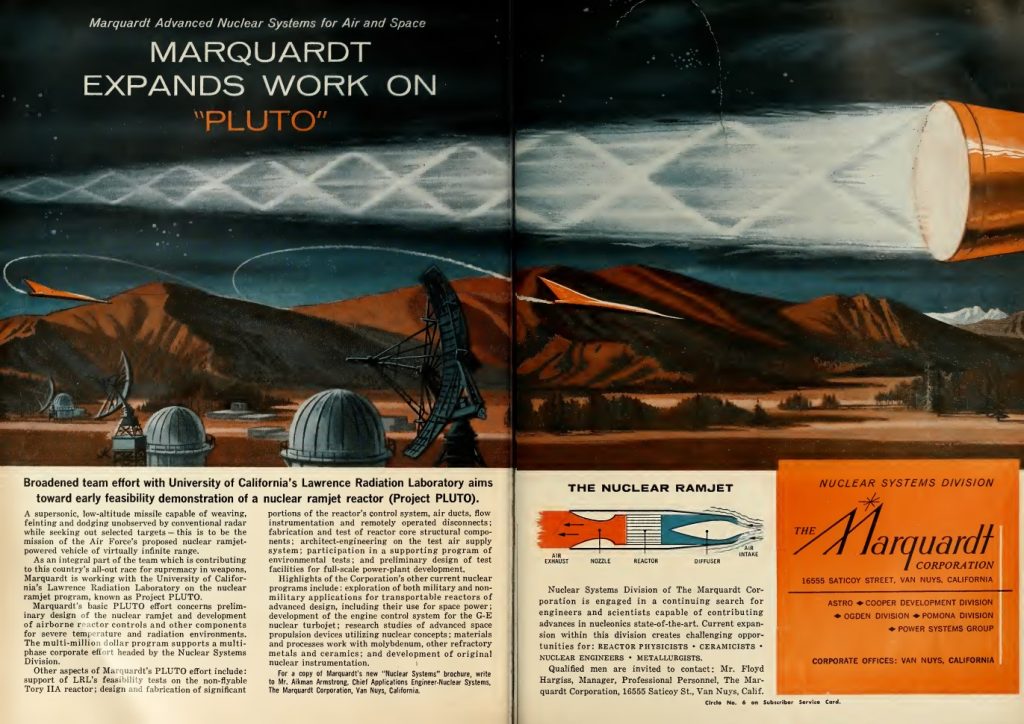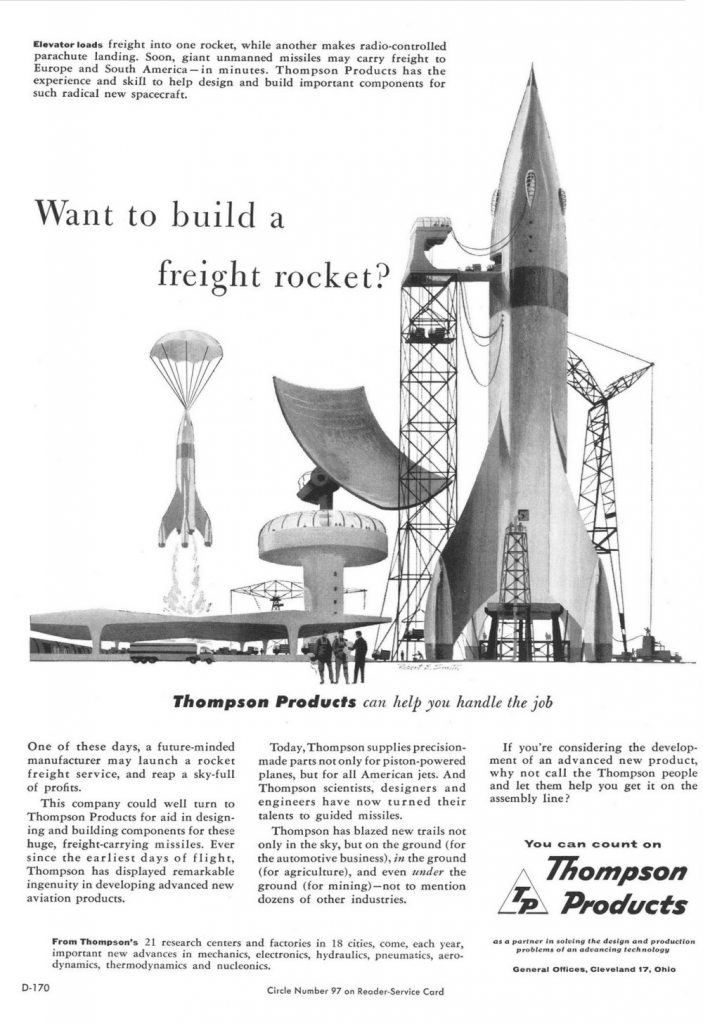A double-page spread from Aviation Week in 1967 showing models of various designs leading to the final 747 configuration.
A piece of art from 1962 depicting a Westinghouse Electric Corp. concept for a space station meant to provide servicing for nuclear powered spacecraft. it appears to be more of a space craft than a space station, since it is equipped with a substantial nuclear propulsion system of its own. It’s unclear what the set of rings at the “front” of the space station are meant to do.
An illustration from circa 1960 showing the launch of a communications satellite. Note the booster falling away in the background… unlike pretty much every booster the US actually built, this one is a slim cone. The caption very likely does not accurately describe this; it is unlikely to be a geosynchronous satellite given not only the low altitude depicted but also the fins on the booster stage.
A photo found for sale on ebay a while back shows a display model (circa 1973) of a Rockwell International concept for a Grumman Gulfstream 2 corporate jet modified for VTOL capability. This was not meant to be an operational concept, but a research vehicle to demonstrate VTOL technologies and operations in a jetliner-like aircraft, with the potential to be implemented into larger passenger-carrying jetliners such as the DC-9. This would allow such airliners to operate from smaller airfields. But the fuel-hungry nature of VTOL aircraft put an end to such notions in the 1970s. This aircraft would have used lift fans in flattened pods on the wings (each pod containing two YJ97 GE-100 gas generating turbojets) and vectorable-nozzle forward-thrust fans (again with two gas generators), for a total of six jet engines.
A glimpse at the first draft of the diagrams for US Transport Projects #8. The careful observer will note that there have been a number of “Forthcoming” posts over the last several months with no followup of a final product. There will be, at some point, a mass release of a larger than usual number of USxP issues.
An advertisement from 1963 illustrating a quite-possibly artistic license nuclear powered space probe heading towards Jupiter. The probe was to use the SNAP-50/SPUR powerplant (300 to 1200 kilowatts of electricity) to power a circular bank of ion engines. The realistic nature of the design should be questioned due to the lack of any apparent communication system… no great big radio dish, in other words.
Patrons of the Aerospace Projects Review Patreon received last month:
Diagram: A foldout diagram of an Apollo-derived logistics spacecraft
Document: “The Piasecki Story,” an illustrated history of the company and its products
Document: “The N.S. Savannah,” a brochure about the sole nuclear powered merchant vessel
Document: “Lunar Spacecraft Design” A paper describing the evolution of the General Electric Apollo design, quite similar to the later Soyuz spacecraft
CAD diagram: 1985 design of the British HOTOL spaceplane
If this sort of thing is of interest, please consider signing up for the APR Patreon.
The video quality is poor, but the content is interesting. A mid-1960’s promotional film for the US SST program (Boeing 2707), focusing on the economic benefits. A lot more reference to *gold* than you would see these days, and a lot more worry about the economic dominance of Concorde than reality would end up providing.
That first generation of SST’s almost certainly never stood a chance of being economically successful. The Boeing 2707 would very probably not have been the economic disaster that the Concorde was, but the oil crisis of the 1970’s and inability to fly overland routes almost certainly would have wrecked its ability to be profitable. However… a *next* generation of SST built on the lessons of the 2707? *Possibly* quite successful.
An advertisement from 1960, illustrating Marquardts work on the Project Pluto nuclear ramjet:
If you want more on Project Pluto – and who wouldn’t, as the idea of a locomotive-sized cruise missile flying at virtually unlimited range at tree to level and at a blistering Mach 3+ is fascinating – check out Aerospace Projects Review issue V2N1.
An ad for Thompson Products from 1958. The cargo rocket shown here is pure artistic license, with almost certainly no actual engineering behind it. It’s pure science fiction for the purpose of advertising razzmatazz. And yet… the similarity to the latest design of the SpaceX BFS is pretty remarkable.
“Thompson Products” may not be immediately familiar. But in October 1958 (about two months before this ad was published in Av Week, so… shrug) Thompson Products merged with the Ramo-Wooldridge Corporation, forming Thompson Ramo Wooldridge Inc. … TRW. So… huh, how about that.

